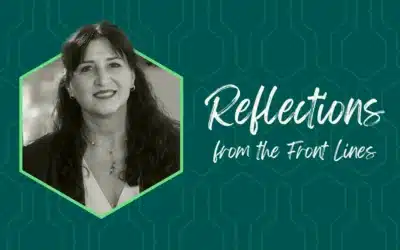It’s been 10 days since my last post and 25 weeks since losing my sense of smell. It’s coming back in small ways, like bleach, citrus, and second-hand marijuana… I would prefer to regain the scents of coffee and chocolate.
And still, I’m not “homeless,” so I can manage without full olfaction.
The number of unsheltered in the neighborhood of the Human Services Campus dipped to 994 this week. We aren’t getting excited about a downward trend unless we see less than 1,000 for a few weeks in a row. People are getting ready for summer with additions of inflatable swimming pools and relocated tree trunks with minimal fronds on them. The unshelteredness appears more permanent than ever. The HSC outreach team continues to engage people in services, and the biggest barriers to progress are the lack of emergency shelter space and permanent housing for all.
As I prepared for a media interview today with an expectation about questions as to toilets, I had an a-ha moment. There is a definite need for all hygiene and basic needs if a person is unhoused and unsheltered. Those are facts. The HSC has toilets in all of its buildings that meet City code. HSC began operating the Welcome Center 24 hours a day last December, to ensure access to facilities, staff, and services literally all the time. The City of Phoenix funded a mobile toilet trailer with ten stalls that sits on HSC property with public access. 24 hours a day, seven days a week. There is no “code” for public toilets to serve the unsheltered. This is not a group of people attending a special event. It is not a group of people who have been granted refugee or asylum seeker status. There are specific guidelines for establishing refugee camps.
People experiencing homelessness don’t have the same “rights” as housed people, refugees, or asylum seekers. (Please know I also don’t believe refugees and asylum seekers are always treated humanely and/or fairly (nor are housed people!).) The unhoused are sitting, sleeping, living where they can find a space to exist. A space where they may be told to move on; a space where they may be cited for trespassing; a space where they may be arrested. Service providers that work with the unhoused are not creating livable street spaces. We are not oriented toward providing amenities on streets to make them livable. We are oriented toward finding everyone a safe, affordable, permanent place to live indoors.
Yes, we want unhoused individuals to be safe. We want them to have access to services, including restrooms and hygiene items. And our goal is to help people find a place to live, rather than make their current circumstances livable.
I keep replaying a voice message in my head from a woman who sounded like she was holding back tears. She spoke of impending eviction, living with a disability. I’m not a gambling woman, and I would bet money that she isn’t expecting to have to live on a public street and use porta-potties.
We must do better. We must find paths to more emergency shelter and more permanent housing. We must find ways to help people stay housed. Individuals living on a fixed Social Security or Social Security Disability Income should not be evicted.
At least three times this week I was asked for my perspective on the increase in homelessness and asked what we should do. And as part of my answer, I realized counting up my work history that I have been having these conversations for 17 years. And I’ve had the conversations in this blog!
And I will continue to have the conversations because the level of unhoused-ness and lack of urgency is unacceptable. We have to rebuild systems to eliminate as much as possible the risk of homelessness. We need an unhoused crisis response system that functions to rapidly return people to housing with the supports that they need to stay housed. We must move our frame of thinking and acting from managing homelessness to “ending” it. “Ending” might mean “functional zero.” This means that the number of people within that population consistently remains under a measurable threshold that represents the system’s monthly capacity to support positive exits from homelessness.
If you are a systems thinker and want to join me and HSC in achieving functional zero on homelessness, message me. If you are focused on managing homelessness with band-aids, we can still be friends; and I will keep pushing you to be a part of systems change.
Seventeen years… I’m aging y’all. In 17 more years, I’ll be pushing 70. Please work with me, so we can all retire knowing we left a legacy of achieving what some say is impossible, “ending homelessness.”



